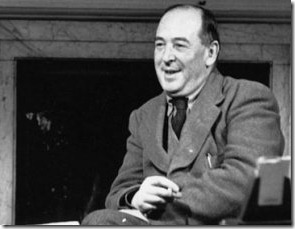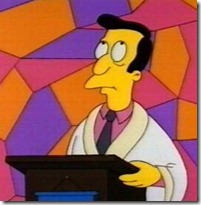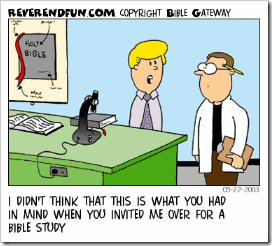 “More to be desired are they than gold, yea than much fine gold: sweeter also than honey and the honey-comb” (19:10). One can well understand this being said of God’s mercies, God’s visitations, His attributes. But what the poet is actually talking about is God’s law, His commands; His ‘rulings’ as Dr Moffatt well translates in verse 9 (for ‘judgements’ here plainly means decisions about conduct). What are being compared to gold and honey are those ‘statutes’ (in the Latin version ‘decrees’) which, we are told, ‘rejoice the heart’ (v. 8). For the whole poem is about the Law, not about ‘judgement’…
“More to be desired are they than gold, yea than much fine gold: sweeter also than honey and the honey-comb” (19:10). One can well understand this being said of God’s mercies, God’s visitations, His attributes. But what the poet is actually talking about is God’s law, His commands; His ‘rulings’ as Dr Moffatt well translates in verse 9 (for ‘judgements’ here plainly means decisions about conduct). What are being compared to gold and honey are those ‘statutes’ (in the Latin version ‘decrees’) which, we are told, ‘rejoice the heart’ (v. 8). For the whole poem is about the Law, not about ‘judgement’…
This was to me at first very mysterious. ‘Thou shalt not steal, thou shalt not commit adultery’ — I can understand that a man and must, respect these ‘statutes’, arid try to obey them, and assent to them in his heart. But it is very hard to find how they could be, so to speak, delicious, how they exhilarate. If this is difficult at any time, it is doubly so when obedience to either is opposed to some strong, and perhaps in itself innocent, desire. A man held back by his unfortunate previous marriage to some lunatic or criminal who never dies from some woman whom he faithfully loves, or a hungry man left alone, without money, in a shop filled with the smell and sight of new bread, roasting coffee, or fresh strawberries — can these find the prohibition of adultery or of theft at all like honey? They may obey, they may still respect the ‘statute’. But surely it could be more aptly compared to the dentist’s forceps or the front line than to anything enjoyable and sweet.
A fine Christian and a great scholar to whom I once put this question said he thought that the poets were referring to the satisfaction men felt in knowing they had obeyed the Law; in other words, to the ‘pleasures of a good conscience’. They would, on his view, be meaning something very like what Wordsworth meant when he said we know nothing more beautiful than the ‘smile’ on Duty’s face — her smile when her orders have been carried out. It is rash for me to differ from such a man, and his view certainly makes excellent sense. The difficulty is that the Psalmists never seem to me to say anything very like this.
In Psalm 1:2 we are told that the good man’s “delight is in the law of the Lord, and in his law will he exercise himself day and night.” To ‘exercise himself’ in it apparently does not mean to obey it (though no doubt the good man will do that too) but to study it, as Dr Moffatt says to ‘pore over it’. Of course ‘the Law’ does not here mean simply the ten commandments, it means the whole complex legislation (religious, moral, civil, criminal and even constitutional) contained in Leviticus, Numbers and Deuteronomy. The man who ‘pores upon it’ is obeying Joshua’s command (Joshua 1:8), “the book of the Law shall not depart out of thy mouth; but thou shalt meditate therein day and night.” This means, among other things, that the Law was a study or, as we should say, a ‘subject’; a thing on which there would be commentaries, lectures, and examinations. There were. Thus part (religiously, the least important part) of what an ancient Jew meant when he said he ‘delighted in the Law’ was very like what one of us would mean if he said that somebody ‘loved’ history, or physics, or archaeology. This might imply a wholly innocent — though, of course, merely natural — delight in one’s favourite subject; or, on the other hand, the pleasures of conceit, pride in one’s own learning and consequent contempt for the outsiders who don’t share it, or even a venal admiration for the studies which secure one’s own stipend and social position.
C.S. Lewis, ‘Sweeter Than Honey,’ Reflections on the Psalms (1958) as republished within C.S. Lewis: Selected Books (London: HarperCollins, 2002) 338-339.
 Do not imagine that if you meet a really humble man he will be what most people call ‘humble’ nowadays: he will not be a sort of greasy, smarmy person, who is always telling you that, of course, he is nobody. Probably all you will think about him is that he seemed a cheerful, intelligent chap who took a real interest in what you said to him. If you do dislike him it will be because you feel a little envious of anyone who seems to enjoy life so easily. He will not be thinking about humility: he will not be thinking about himself at all.
Do not imagine that if you meet a really humble man he will be what most people call ‘humble’ nowadays: he will not be a sort of greasy, smarmy person, who is always telling you that, of course, he is nobody. Probably all you will think about him is that he seemed a cheerful, intelligent chap who took a real interest in what you said to him. If you do dislike him it will be because you feel a little envious of anyone who seems to enjoy life so easily. He will not be thinking about humility: he will not be thinking about himself at all.


































